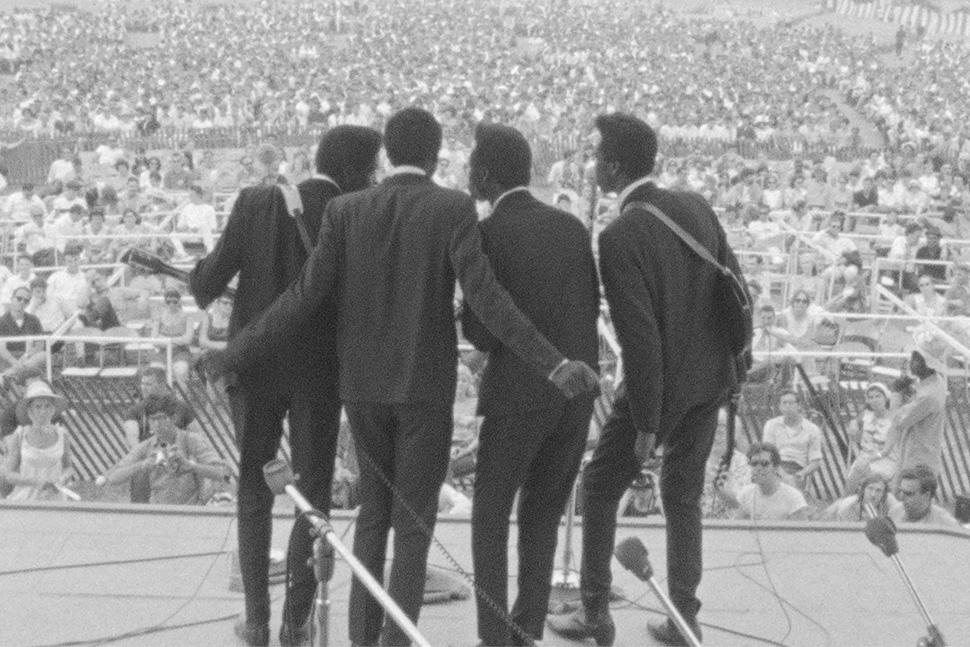Before making this film, we were attracted to the element of protest in folk music, and to the way the songs live in and travel through humanity — an intergenerational connectedness. But we mostly associated the sound of folk music with the sappy side of singer-songwriters, complemented by spirited versions of She’ll Be Coming ‘Round the Mountain; we were wrong. This documentary is made from footage shot in the early 1960s and it could not be more relevant to this 21st century political moment. While making it, we observed the USA trying to turn the world back to the racist and nationalist sentiments of this movie’s early 1960s era. In contrast, we were powerfully moved by the festival’s embrace of diverse cultures, by the exchange of songs and technique between the generations, by the 1960s fight for racial and electoral freedom.
At the Newport Folk Festival, people who would not ordinarily encounter each other had the chance to develop bonds. The festival was in the living folk tradition, elders sharing songs and technique, the youth innovating and pushing the envelope. Freedom songs rang out alongside work songs, a player on homemade pan pipes mesmerised alongside the generation’s greatest future singer-songwriters. The timeliness — and timelessness — is astonishing. The footage over these four years, 1963-1966, documents how fast changes occur. We’re living through radical change now, and we hope this movie inspires more music, more understanding, more courage. It was an honour to curate these artists — and a very difficult task. Bob Dylan goes electric, Phil Ochs leaps to the present, Mississippi John Hurt makes time stand still. Pete Seeger and Peter, Paul & Mary evolve before our eyes. The film is rife with surprises — and unusual sounds. A thrilling musical experience, Newport & The Great Folk Dream is a paean to activism, it embraces the big tent and like the music, this film does not shy from a powerful message: Democracy thrives on diversity.




